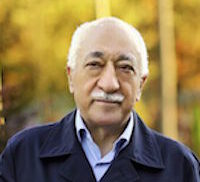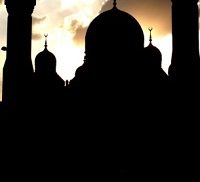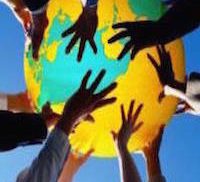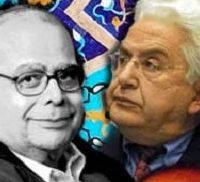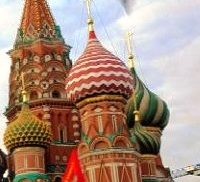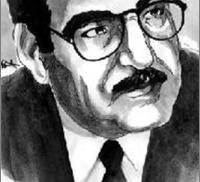The choice of Francis as his papal name by Jorge Mario Bergoglio immediately signaled the doctrinal orientation of his pontificate. Following in the footsteps of Saint Francis of Assisi, the new Bishop of Rome would uphold three guiding principles: love for the poor, care for our common home, and a commitment to a culture of encounter and peace. A commitment that his critics have sometimes labeled as populist—despite his explicit rejection of that label. Pope Francis’s outlook was, in fact, open, transnational, and pluralistic—the very opposite of European populisms. From his earliest symbolic gestures—from refusing the papal apartments to embracing migrants in Lampedusa—Bergoglio embodied a “Church that goes forth,” one that engages with the world not with doctrinal arrogance but with a spirit of service. His language, stripped of curial formalism, brought the papacy closer to the people, while the vision of the pope “from the ends of the earth” shifted the Church’s center of gravity away from Europe, toward the peripheries of the planet, and above all toward a new alliance between faiths, cultures, and peoples. In this dossier, we offer a series of reflections on the legacy of his pontificate and the future prospects of the Church.
Dossiers
- After the coup, the two principal actors in Turkey have been the current President, Recep Tayyip Erdogan, and the multi-billionaire and Islamic ideologue, Fetullah Gülen, who has been in self-imposed exile in the United States since 1998. Much of what one has to know about Gülen’s media empire is in this monograph from 2015. Reset DoC’s articles try to analyze this ongoing process and its actors: Erdogan with his new authoritarian tendencies and Gülen with his global media network. The international academic, intellectual community ask the US government and the European Union to stop Erdogan’s authoritarian and violent grip on the country.
- The uprisings that led to the downfall of regimes in Egypt, Tunisia and Libya in 2011 initially seemed to herald the end of a state system introduced into the MENA region by imperialist powers after WWI. Characterized by an authoritarian model of modernization and secularization from above, the fall of these XX Century regimes opened the door to the rise of political Islam. But when Islamist parties that have come to power in Egypt and Tunisia, although with remarkable differences, they have proven unsuccessful in stabilizing governments and writing new constitutions. Are democracy and a religious revival compatible? What will replace the spent legitimacy of these regimes across the region? What kind of state could now take shape in Muslim contexts overturned by revolts and civil war? And what place will religion have in these states?
- Family is one of the most “natural” and fluid social constructs of human history and can be easily affected in different ways by social, cultural and religious changes. So why does the pluralisation of ways of forming a family seem to be a new phenomenon, and such a radical one, that to some it appears to be a risk as far as social cohesion is concerned? This question inspired the conference organized by Reset-DoC on “Family regulations in a society with fluid borders”, from which the following papers were drawn. Here, we are trying to understand new ways of conceiving and creating family in our globalized world, as well as the transformations occurred in the definition of citizenship and the legal framework behind new “types” of families.
- Three great Arab intellectuals – Nasr Hamid Abu Zayd, Mohammed Abed Al-Jabri and Mohammed Arkoun – died in 2010, shortly before the outburst of the Arab Springs and in the midst of an identity crisis that is tearing apart the Muslim world, in a region beset with complex questions related to identity, religion’s place in society and politics, modernity, the democratization process, the status of minorities in Islamic societies and the concretization of a borderless Maghreb and Mashrek. Six years later, many of the important open questions that have for so long plagued this part of the world, have not yet been resolved. However, the intellectual and moral legacy that arises from the life-long work and commitment of these three thinkers can still help us understand and imagine a way out of the darkness.
- Can we say that what is under way in Today’s Russia is a process of “Re-composition” of a Moscow-dominated political space, twenty-five years after the collapse of the Soviet Union? Reset-DoC publishes the edited transcripts of the conference talks given in Berlin last June by Marlene Laruelle, Giuliano Amato, Toomas Hendrik Ilves and Karel von Schwarzenberg. The aim of Reset-DOC’s conference was to analyse the political culture of today’s Russia as well as Russia’s ideological trajectory over the last twenty-five years, when Russia seems to have developed a new version of the “power state” that dominated European history until the end of the 20th Century. Other speakers at the roundtable included Jörg Lau and Manuel Sarrazin, the Director of Reset-DOC Giancarlo Bosetti chaired the meeting.
- The popular uprising against Hosni Mubarak’s regime opened the Egyptian public sphere up to various groups and movements, but the military intervention in July 2013 has allowed the government to take a number of measures aiming at regaining state control over the public sphere. Reset-DoC’s new articles offer an in-depth analysis of this ongoing process and its actors: four years after Tahrir, digital mass-surveillance, renewed pressure on civil society and on the media, as well as the “Egyptianization” of the war on terror, are rapidly restricting the country’s public space and threatening human rights.
- The Moroccan philosopher Mohammed Abed Al Jabri (27 Dec. 1935 – 03 May 2010) has marked contemporary Arab and Islamic thought with his voluminous works of categorizing and systematizing the tradition. The author of La Critique de la Raison Arabe raised critical issues that he considered existential for intellectual and political renewal in the region. On May 5th 2015 Reset-DoC and its partners organize an “Al Jabri Day” in Rome, Italy, with lectures and contributions in honor of this great Moroccan philosopher and founding father of critical thought in contemporary Arab-Islamic philosophy.
- Democracy currently enjoys almost unanimous consensus and is considered the only scrupulously legitimate political system. This consensus however entails a hidden danger since it presupposes that there is only one genuine form of democracy – allegedly the one developed by Western civilization. Is that true? Or is it possible to acknowledge a plurality of “cultures of democracy”, whose roots grow within diverse civilization and modernization processes?
- Reset-DoC is dedicating its new issue to Tunisia’s exceptional democratic experience within a regional scenario still broadly characterised by instability, violence and new authoritarianisms, with new articles closely examining Tunisia’s post-revolutionary evolution in its media, society and politics. As Jonathan Laurence from Boston College explains in his introductory analysis, today we can say that, although threatened by polarization and radicalisms, Tunisia’s transition has been a success. This is above all thanks to a search for dialogue and acceptance of democratic compromise by the key political players involved, who have understood that concessions are necessary in order to hold together the republican front of Tunisians who swear by the rule of law, while keeping at bay the twin national demons of militant Islamism and overzealous anti-Islamism.
- After the tragic attack in Paris that killed twelve people and injured many others in the Charlie Hebdo offices in Paris, Reset-Dialogues is offering its readers op-eds by our authors followed by a selection of articles, interviews and videos published on this website in recent years and months. Ranging from 9/11 to the Danish cartoons affair, from the reactions inflamed by the offensive “Innocence of Muslims” film to very different events such as the Utoya killings and the Boko Haram kidnappings, these articles and their authors tackle fundamental questions and issues raised once again by a violent incident that troubles and questions democracies and liberal thought at the heart of their commitment to tolerance, freedom of speech and openness.



